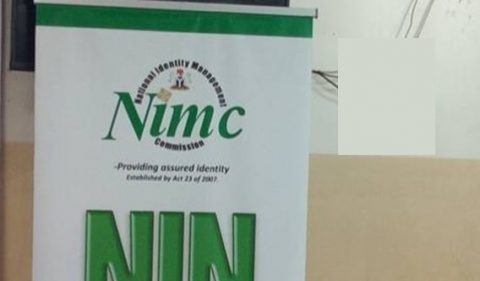OPINION: Multiple National Database: Identity Management or Data Chaos?
Articles/Opinion, Featured, Latest Headlines Friday, April 19th, 2024
(AFRICAN EXAMINER) – Recently, the National Identity Management Commission (NIMC) said that it would launch three new national identity cards for 104 million Nigerians nationwide.
According to NIMC, the three new cards are a bank-enabled National ID card, a social intervention card, and an optional ECOWAS National Biometric Identity Card.
A national newspaper quoted Mr Ayodele Babalola the Technical Adviser, Media & Communications to the Director-General of NIMC, Abisoye Coker-Odusote, as saying the new identity cards would serve various purposes.
“We expect the bank-enabled National ID to meet the needs of the middle and upper segments who typically use banks within the next one or two months after launch.
“Also, activation of the National Safety Net Card to meet the urgent needs for authentication and a secure platform for government services such as palliatives within the next one or two months.
“The focus will be on the 25 million vulnerable Nigerians funded by the current government intervention programmes,” he said.
He also said that virtual versions of those cards would be available for individuals who prefer digital formats.
Like every forward-thinking society, it is easy to understand why the Federal Government wants to maximally leverage information technologies to deliver social services to Nigerians.
The collection and storage of data, experts say, play an important role in driving socio-economic development, and Nigeria cannot be left behind.
However, at a time when Nigerians are clamouring for the harmonisation of numerous national databases, many consider this new round of data collection unnecessary.
Last August, the former D-G of NIMC, Mr. Aliyu Aziz, said efforts were ongoing to harmonise multiple databases of Nigerians.
He told a told a national daily that a dedicated harmonisation committee had been working for the seamless integration of diverse silo databases into the National Identity Database.
He also said the harmonisation of databases across functional identity systems had begun with the Nigerian Inter-Bank Settlement System for bank verification number holders, immigration for passport holders, NCC for SIM cardholders and many other agencies.
Unfortunately, this harmonisation plan has been going on for years now without success.
Earlier in 2018, the government set up a harmonisation programme and gave it a 14-month target for the harmonisation and integration of all databases operated by all government departments and agencies.
The harmonised and integrated data is to be fed into the National Identity Database under the management of the NIMC.
In an article published on Techpoint Africa, Gbenga Awodokun, an architect with GE Digital, argued that the inaccuracies experienced in data collection could be linked to multiple databases.
“The reason for this ambiguity is an obvious one – when different government agencies and parastatals have their own IT systems with no shared synchronisation, the result is monotony and inaccuracies.
“Since we cannot trust the data collected so far, it is not surprising that the government has to invest much-needed human and capital resources on new data projects or schemes such as the new national identity card project.
“Aside from the obvious redundancy of such effort, data will be entered at different times into disparate databases and this will further compound the problem of inaccuracies in such records,” he wrote.
Mr Ladi Fagbolu, a UK-based project manager, said the proliferation of databases by the government highlights the need for a cohesive and comprehensive approach to information management and security.
“Recently, I read how the data of Nigerians are being given to unauthorised individuals and companies for commercial purposes.
“This is because our data about Nigerians are just everywhere, making it almost impossible to trace who gave out what.
“To harmonise national data spread across multiple databases won’t be a cheap exercise, but it is definitely more cost-effective and seamless than creating new ones,” he said.
Indeed, it was recently revealed that a private company was selling the personal data of Nigerians online.
This prompted the NIMC, to release a statement saying, “NIMC reaffirms its unwavering dedication to safeguarding, securing, and responsibly managing the data entrusted to us.”
Some cybersecurity experts warn that multiple data collection and storage exposes the personal data to the illegal transfer or storage of personal, confidential, or financial information.
This violates the Nigeria Data Protection Act (2023), which, the governing framework for processing personal data; rights of a data subject; data security.
Among others, the Act also provide for cross-border transfer of personal data; and requirements for data controllers and data processors of major importance.
Some experts say government should not contemplate spending scarce resources to create more databases when defects persist in the existing ones.
Some cited the inability of the National Communications Commission (NCC) to fully enforce the linkage of National Identification Numbers (NINs) to Subscriber Identification Module (SIM) cards, in spite of multiple deadlines set since December 2020.
They also point at the seeming ineptness of officials who register Nigerians for NIN after which the biodata would contain some errors resulting in Nigerians spending money and time to correct the avoidable mistakes.
They, therefore, call on the government to return to the initial harmonisation process to clean up, merge and consolidate the personal records of Nigerians rather than creating new ones. (NANFeatures)
By By Kayode Adebiyi, (NAN)
Related Posts
Short URL: https://www.africanexaminer.com/?p=95135






















